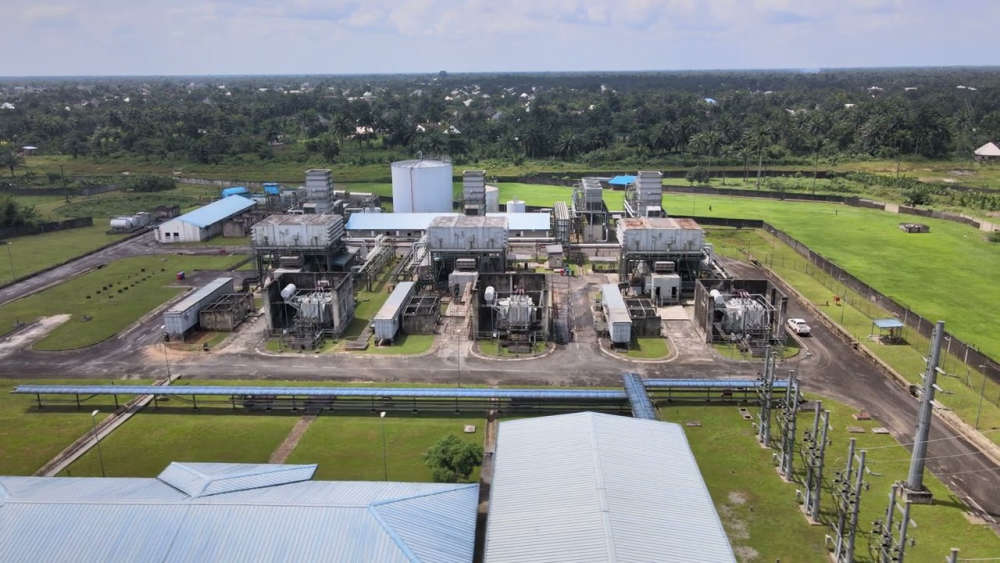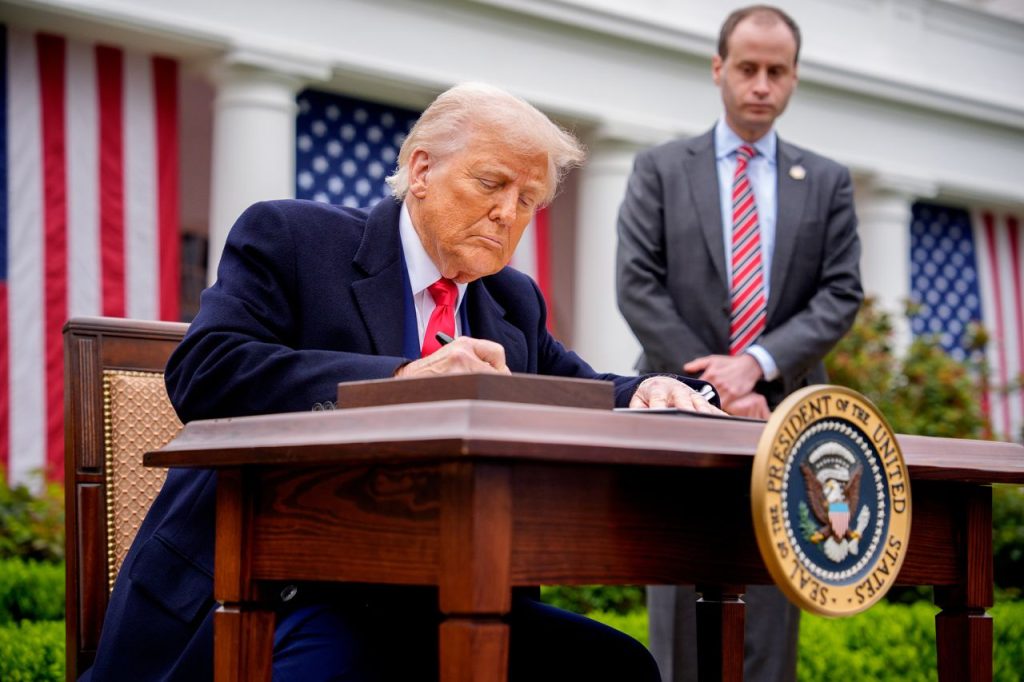In Nigeria, governance is more about who wields power that who delivers results. Most of it owes to widespread corruption, outdated or inexistent bureaucracy and the absence of performance-based accountability. Hate or love him, Elon Musk’s Department of Government Efficiency is a radical experiment that presents an interesting way to shake things up.
Musk and Trump: The Origins of DOGE
On August 11, 2024, Musk and Trump held an open conversation on X Spaces. At a point in the convo, Musk suggested Trump should form a new presidential commission that would focus on “government efficiency” and appoint him to it.
Trump immediately responded, “I’d love it.”
Within days of his inauguration, President Trump signed an executive order establishing DOGE. Its role was to serve as a special government office tasked with cutting inefficiencies in the U.S. federal system. In just months, it had already slashed billions in unnecessary spending, canceled redundant programs, and restructured bloated agencies.
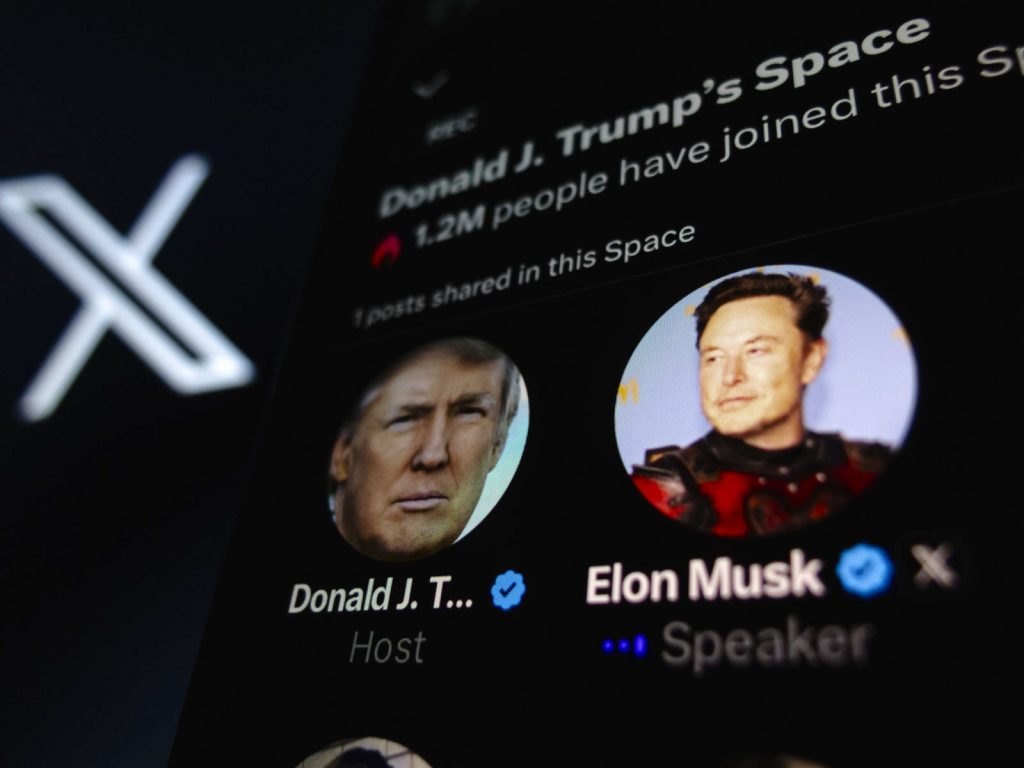
The Twitter Playbook
This wasn’t new for Musk. His playbook for efficiency has always been ruthless. At Twitter (now X), he cut 80% of the workforce overnight, fired executives, and eliminated unnecessary processes. The results were leaner operations and reduced costs. His drastic cost-cutting style set a precedent for widespread layoffs across the tech industry, prompting companies to implement to reshape talent dynamics and organizational strategies.
While X has yet to fully recover financially, it is growing steadily against all the doomsday predictions that followed Musk’s acquisition of the platform. Musk applies the same logic at Tesla and SpaceX, where he challenges every existing norm to optimize performance. The goal of DOGE is to bring that style to the federal government.
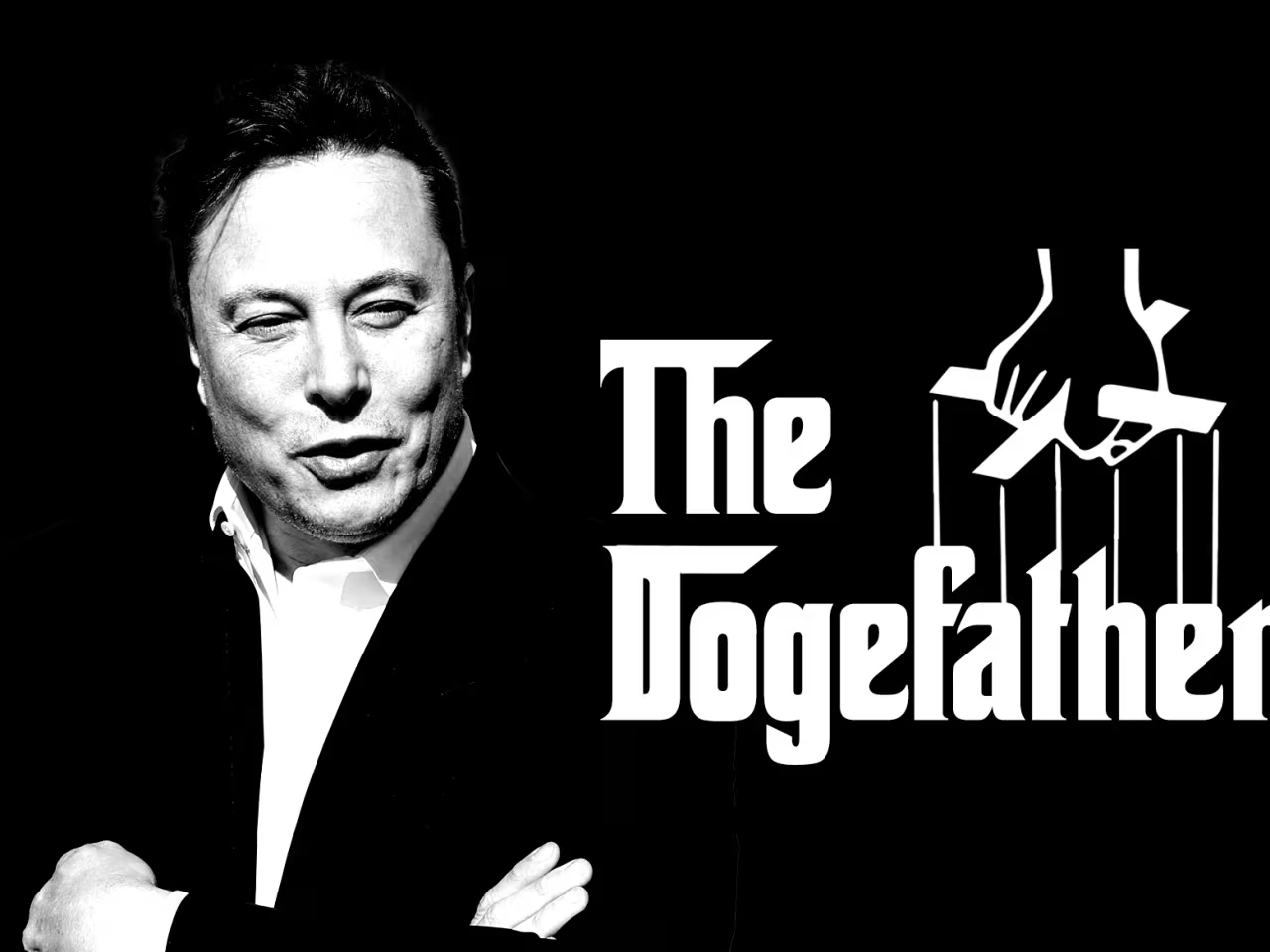
The Psychology of Institutional Inertia: Why Disruptors Like Musk Are Needed
Just like human beings, governments resist change, not because they can’t improve, but because too many people benefit from inefficiency. This phenomenon is called institutional inertia; it describes a system’s tendency to maintain the status quo at all costs, even when it’s failing.
Figures like Elon Musk and, to some extent, Donald Trump, are often necessary to disrupt this inertia. Musk didn’t just follow trends, he invented them. He pushed electric vehicles when it wasn’t fashionable, insisted on going to Mars when no one else cared and revolutionized industries by challenging the assumption that things must remain as they are.
This, in part, is one of the reasons Musk and DOGE has faced extreme backlash and criticism. Another reason is its extreme transparency. Musk promised that every cost-cutting move would be published online for the public to see. DOGE exposes the waste and inefficiency that many would prefer to keep hidden and removes the political cover that allows corruption to thrive. It also challenges the idea that government should be a slow-moving, untouchable institution.
Nigeria needs its own version of this. A leader unafraid to break the cycle of mediocrity and demand real efficiency. It also needs a transparent process immediately available to the public. Transparency is a disinfectant; the more the public knows, the harder it becomes for corruption to persist.
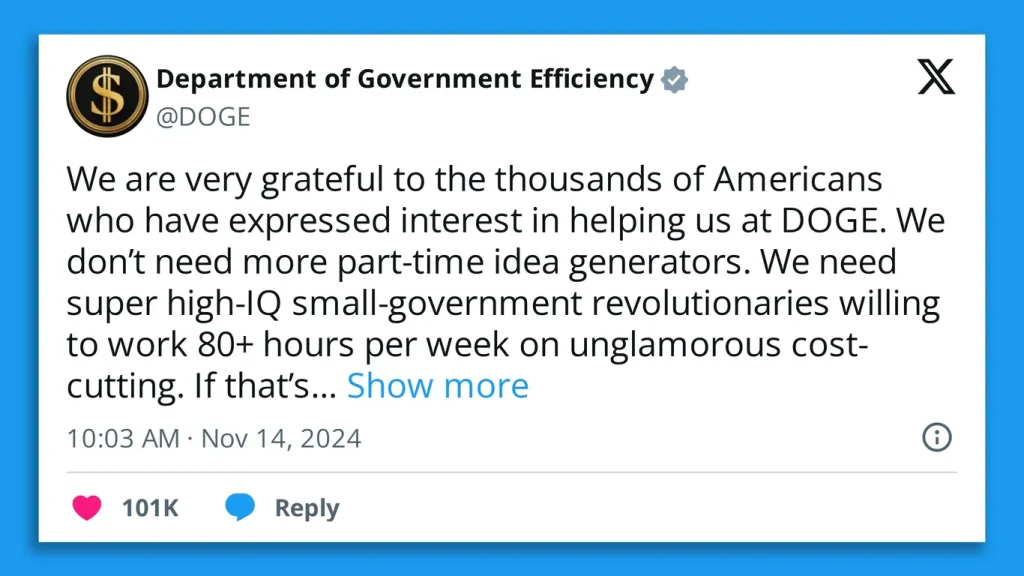
What Nigeria Can Learn from Musk’s Department of Efficiency Experiment
First, corruption is not just an African problem, it exists everywhere.
DOGE has exposed extreme levels of corruption in the US federal government. The difference is that in the more developed economies, corruption is often hidden within the bureaucracy. In Nigeria, it’s more blatant, open and woven into every aspect of society. In other words, Nigeria’s problem isn’t just bureaucratic inefficiency; it’s a cultural resistance to moral rectitude and accountability. Just like Musk is battling resistance in Washington, any attempt to fix Nigeria’s government will face fierce opposition from those who benefit from the status quo.
Second, the problem isn’t too much bureaucracy, it’s too little bureaucracy
In America, DOGE fights too much bureaucracy, layers of approvals, redundant committees and slow processes. But in Nigeria, the issue isn’t bureaucracy but the lack thereof. Public officials largely operate on their own whims and make decisions based on their personal interests rather than any clearly articulated institutional frameworks.
DOGE’s strategy of cutting inefficiencies wouldn’t just mean firing redundant workers in Nigeria, it would mean creating proper structures where none exist. The goal would be to build a government that functions efficiently.
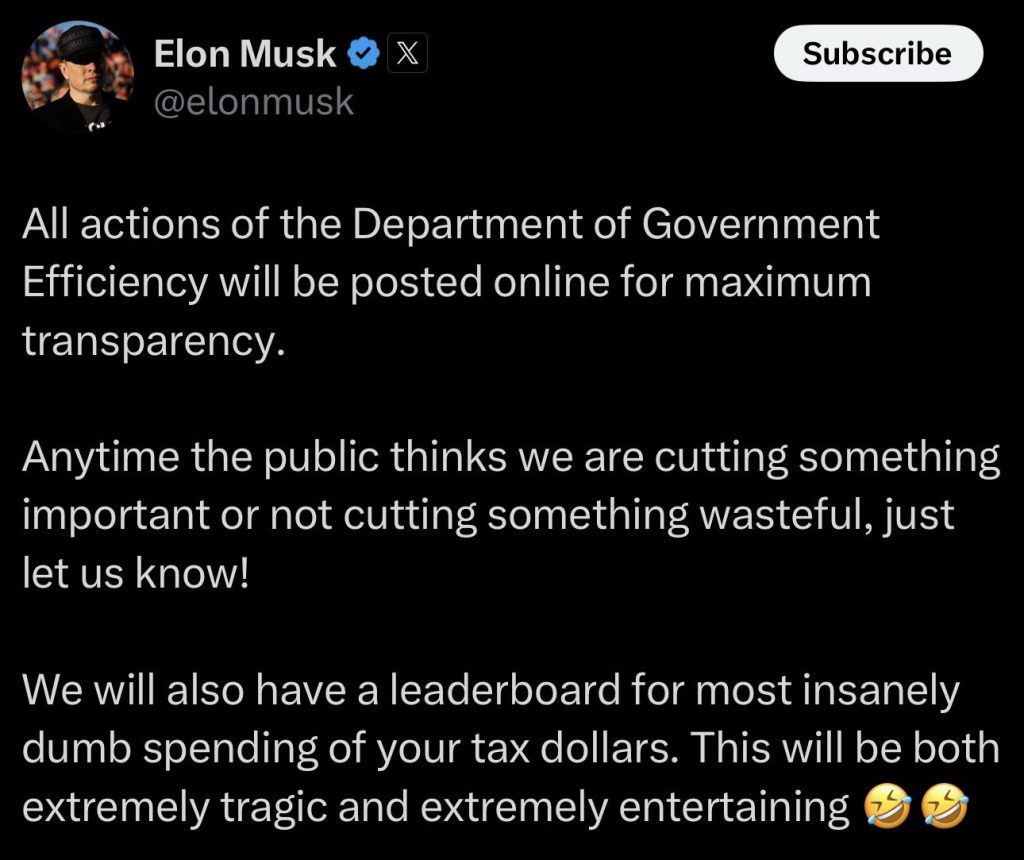
Third, our public sector is still stuck in the past
Walk into a government office anywhere in Nigeria and you’ll find middle-aged clerks carrying around paper files in an age where digital solutions exist. Meanwhile, Nigeria’s youth, who have the tech skills to transform governance, are largely excluded from leadership. Many are leaving the country altogether in search of opportunities abroad. Nigeria needs young, tech-savvy minds in public offices, not just career politicians with no understanding of modern governance.
Fourth, technology is the key to reducing corruption
Musk’s Department of Government Efficiency is proving that transparency and automation can reduce corruption. In Nigeria, where corruption thrives on human contact, for instance, bribes, the solution is to minimize direct human involvement in governance by automating entire processes.
Five, high performance must be demanded from government employees
Musk’s philosophy is simple: If you don’t add value, you don’t belong. Nigeria’s public sector is plagued with ghost workers, redundant positions, and unqualified personnel who remain in office simply they are well connected. Reforming this means setting strict performance metrics and ensuring that government officials actually earn their salaries.

Without Disruption, Nothing Will Change
The problem isn’t fixing just this or that aspect of governance, the entire system is rotten at the core. Nigeria doesn’t need minor fixes; it needs a total governance overhaul. Hate him or not, Musk’s DOGE is a radical model of change that can transform governments to function like a well-run company: efficient, data-driven and transparent.
While Nigeria’s problems are different, the lesson is clear: without radical disruption, nothing will change.
Gain More Insights
Asake: It takes A Village to Go Broke: Was Asake the victim of Blackmail
The Naira Won’t Go Below ₦1,500 to the Dollar Anytime Soon: The government has already fixed the exchange rate at ₦1,500 for the foreseeable future.






